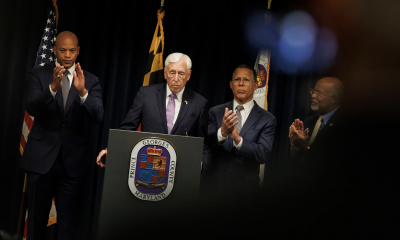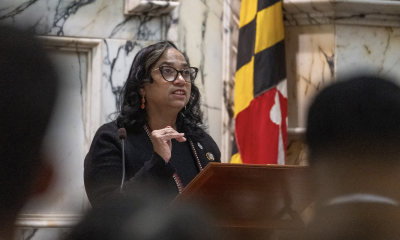Cannabis Culture
Cannabis Culture
Baltimore prosecutor won’t target marijuana possession
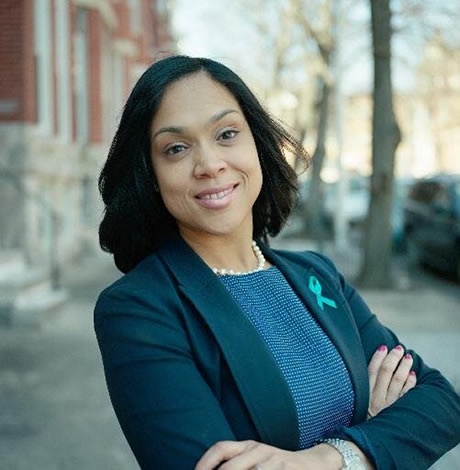
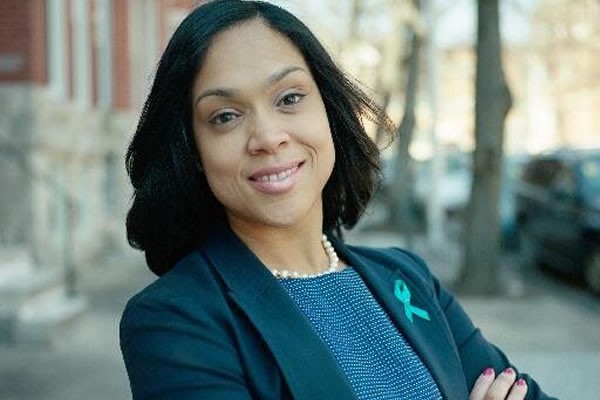
Baltimore prosecutor won’t target marijuana possession
BALTIMORE — Officials will no longer prosecute marijuana possession offenses in Baltimore, according to a newly announced public policy by the office of the State’s Attorney for Baltimore City.
Under the plan, which takes immediate effect, the office will also move to expunge the criminal records of an estimated 5,000 citizens previously convicted of cannabis-related offenses. The office’s decision to cease targeting minor marijuana violations is similar to actions recently taken by prosecutors in a number of other major cities, including St. Louis, Missouri; Westchester, New York; Philadelphia, Pennsylvania; and Norfolk, Virginia.
State’s Attorney Marilyn Mosby said that the new policy will provide “a major step forward in making Baltimore city safer, fairer, and more equitable, and even more just.”
The office will continue to take action against felony cases involving the possession of marijuana with intent to distribute, though prosecutors will refer all first-time offenders to diversion programs.
Cannabis users reduce consumption of other substances: study
VICTORIA, Canada — Canadian patients who consume medical cannabis products in compliance with federal law typically reduce or eliminate their use of alcohol, tobacco, and pharmaceutical drugs, according to data published in the Harm Reduction Journal.
A team of investigators from Canada and the United States surveyed over 2,000 federally registered medical cannabis patients with regard to their use of cannabis and other substances.
Authors reported, “The most commonly cited substitution was for prescription drugs (69 percent), followed by alcohol (45 percent), tobacco (31 percent), and illicit substances (27 percent).” Of those reporting substituting cannabis for conventional medications, 35 percent said that they used cannabis in place of opioids. Of these, 59 percent said that they ultimately ceased their use of opiates.
Investigators further reported: “Of the 515 respondents who substituted cannabis for alcohol, 31 percent suggested they stopped using it completely and 37 percent reported reducing [their consumption] by at least 75 percent. … Of the 406 participants who substituted cannabis for tobacco, 51 say they stopped using it completely and 14 percent reported reducing their use by 75 percent.”
They concluded, “The findings … add to a growing body of academic research suggesting that increased regulated access to medical and recreational cannabis can result in a reduction in the use of and subsequent harms associated with opioids, alcohol, tobacco, and other substances.”
Prior studies have similarly reported an association between medical cannabis access and reduced prescription drug spending, as well as decreased levels of alcohol and tobacco consumption.
Access to medical cannabis reduces opioid use: study
LITTLE ROCK, Ark. — The enactment of medical cannabis access laws is associated with moderately lower levels of prescription opioid use, even after controlling for potentially confounding variables, according to data published in the Journal of General Internal Medicine.
A team of investigators from the University of Arkansas assessed prescription drug use data in a nationally representative sample of nearly five million Americans for the years 2006 to 2014.
In a finding that is consistent with those of several other studies, authors concluded: “Medical marijuana legalization was associated with lower odds of opioid use, chronic opioid use, and high-risk opioid use when controlling for many state-level and patient-level factors. … These results suggest that MML (medical marijuana laws) could be one policy tool that may modestly decrease opioid use; chronic and high- risk opioid use in a landscape where pain management options are limited and opioid misuse and addiction are rising rapidly.”
Observational studies have similarly reported that medical cannabis access states possess lower rates of opioid-related use, abuse, hospitalizations, and mortality as compared to jurisdictions without operating medical marijuana programs.
Cannabis Culture news in the Blade is provided in partnership with NORML. For more information, visit NORML.org or contact Paul Armentano, NORML Deputy Director, at [email protected].

Democratic Gov. Michelle Lujan Grisham earlier this month signed two separate measures into law amending the state’s marijuana policies. The first measure (House Bill 2) legalizes and regulates marijuana possession, production, and sales for adults. The second measure (Senate Bill 2) facilitates the automatic review and expungement of the records of those convicted of low-level marijuana offenses.
Lawmakers approved both bills during a special legislative session demanded by Gov. Lujan Grisham, who had been a vocal proponent of the reforms.
NORML State Policies Manager Carly Wolf said: “This is a day to celebrate! New Mexico will greatly benefit from this new revenue stream and the creation of thousands of jobs. Most notably though, legalization will spare thousands of otherwise law-abiding residents from arrest and a criminal record, and the state’s new expungement law will help provide relief to many who are suffering from the stigma and other collateral consequences associated with a prior marijuana conviction.”
The adult-use measure (House Bill 2) permits those ages 21 and older to legally purchase up to two ounces of marijuana and/or up to 16 grams of cannabis extract from licensed retailers. It also permits adults to home-cultivate up to six mature plants for their own personal use. Retail sales would begin by April 2022.
The expungement measure (Senate Bill 2) stipulates that those with past convictions for offenses made legal under this act are eligible for automatic expungement of their records. Those currently incarcerated for such offenses are eligible for a dismissal of their sentence. It’s estimated that over 150,000 New Mexico residents are eligible for automatic expungement under this measure, according to the Department of Public Safety.
Cannabis Culture news in the Blade is provided in partnership with NORML. Visit norml.org for more information.
Cannabis Culture
Delaware cannabis activists take on corporate marijuana
Criticism from medical marijuana operators claimed that HB150 offers too many cultivation and retail licenses
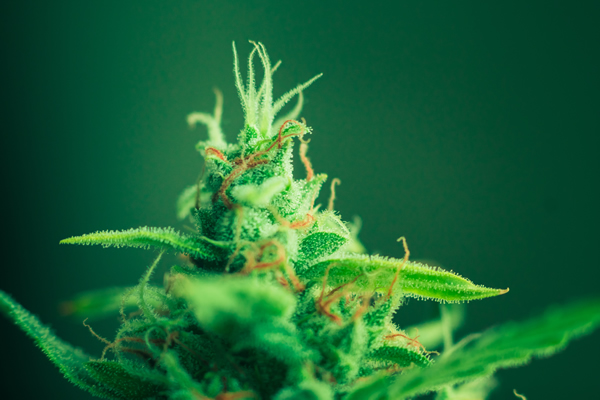
As the country moves forward with sweeping changes in cannabis policy reform, locals in Delaware are tangling with corporate, multi-state medical marijuana permit holders to pass a bill for full legalization.
Adult-use activists and registered medical patients were stunned to hear opposing testimony from Delaware’s medical marijuana operators. Patients already deal with limited access and costly products. Now, many see the established industry voicing opposition as simply obstructing the progress of adult-use legislation. In response, some patients are now staging a boycott of the regulated dispensaries.
During the first committee hearing for HB150, Delaware’s adult-use bill, four of the state’s six currently licensed, multi-million dollar medical cannabis facilities offered negative testimony.
Zoë Patchell, executive director of Delaware CAN responded: “This market belongs to the long-time consumers, patients, and activists. We create the demand, we’ve been the ones driving the reform efforts, and we pay the prices at dispensaries. Cannabis is more than a market – cannabis is a community. These companies cannot reasonably fathom that we are going to purchase cannabis from any entity that has proven to put profits over patients. And now they seem willing to put consumers’ lives and freedom at risk just to hold out for an unfair advantage in the industry.”
These included publicly traded Columbia Care, “Fresh Delaware” aka CCRI, CannTech Research Inc., and the owner of EZY Venture aka “The Farm.”
They all went on record condemning HB150, and pushing a false narrative about oversupply. The core demand from the permit cartel was some protection for their private business interests with guaranteed adult-use licenses.
Criticism from the medical marijuana operators claimed that HB150 offers too many new cultivation and retail licenses, underlined by deep yet unfounded fears that the new competition would put their companies out of business.
Patchell noted, “We are not going to sit back while multi-state corporate entities, that already monopolize East Coast medical markets, work to undermine our social equity and micro-license provisions.”
Cannabis Culture news in the Blade is provided in partnership with NORML. Visit norml.org for more information.
Cannabis Culture
Virginia marijuana legalization takes effect July 1
Adult possession of cannabis up to one ounce without penalty

Following legislative approval of Democratic Gov. Ralph Northam’s amendments to Senate Bill 1406 and House Bill 2312, Virginia became the first southern state to legalize the possession and use of marijuana by adults.
Senate Bill 1406, introduced by Sen. Adam Ebbin (D-30) and Senate President Pro Tempore Senator Louise Lucas (D-18), and House Bill 2312, patroned by House Majority Leader Delegate Charniele Herring (D-46), establish a statutory timeline for the legalization of the commercial marijuana market in Virginia. The measure also permits for the personal possession and cultivation of cannabis by those ages 21 or older.
Last week, Gov. Northam recommended changes to the legislation to permit the personal use provisions of the law to take effect on July 1, 2021 rather than on January 1, 2024, the enactment date initially approved by lawmakers. A majority of the legislature concurred with that change.
Therefore, beginning July 1, 2021, adults will be permitted to possess up to one ounce of marijuana and to cultivate up to four cannabis plants per household without penalty.
The timeline by which state regulators have to enact provisions licensing commercial cannabis production and sales remains July 1, 2024.
Commenting on final passage, NORML Development Director Jenn Michelle Pedini, who also serves as executive director of Virginia NORML, said: “This is an incredible victory for Virginia. Legalization will bring an end to the thousands of low-level marijuana infractions occurring annually in the Commonwealth — ending a discriminatory practice that far too often targets Virginians who are young, poor, and people of color.”
Majority Leader Charniele Herring added: “It is a huge day for equity in the Commonwealth. Virginia is now the first state in the South to legalize recreational marijuana use, and I am so proud to have been able to carry this monumental legislation.”
Sen. Ebbin said, “The passage of SB1406 caps off years of struggle to reform our broken and outdated marijuana laws and begins the deliberate steps to repeal the harms of the failed prohibition. I am thankful to NORML, the governor, and my colleagues for moving this 283 bill from inception to passage over the last four months, and look forward to continuing to partner with them to establish a regulated, equity focused, adult-use marketplace in the coming years.”
Newly released statewide polling data finds that 68 percent of registered voters in Virginia, including majorities of Democrats and Republicans, support legalizing marijuana for adults.
Additional amendments added by Gov. Northam will allow the sealing of records related to crimes involving the misdemeanor possession of marijuana with the intent to distribute. Those records will begin to be sealed starting on July 1, 2021. Separate legislation enacted in 2020 previously sealed records related to misdemeanor marijuana possession.
Records specific to the simple possession of marijuana and/or misdemeanor possession with intent to distribute records will be automatically expunged no later than 2025. Those with records specific to crimes involving the felony possession of marijuana with the intent to distribute may begin to petition the courts for an expounging of their records in 2025.
The bill also allows for the re-sentencing of individuals currently incarcerated for marijuana-related offenses. The measure permits those individuals to have a hearing before the court that originally sentenced them, with legal counsel provided for indigent individuals. However, this portion of the bill must be reenacted in 2022.
The legislation also establishes an independent agency, the Virginia Cannabis Control Authority, to oversee the establishment of regulations that will govern the adult-use market. This agency is set to convene this summer. The remainder of the 300-page bill, which details the regulatory and market structure and social equity provisions, is subject to a second review and vote by the Assembly next year.
Cannabis Culture news in the Blade is provided in partnership with NORML. Visit norml.org for more information.
-

 Colombia5 days ago
Colombia5 days agoGay Venezuelan man who fled to Colombia uncertain about homeland’s future
-

 Arts & Entertainment5 days ago
Arts & Entertainment5 days ago2026 Most Eligible LGBTQ Singles nominations
-

 District of Columbia4 days ago
District of Columbia4 days agoKennedy Center renaming triggers backlash
-

 District of Columbia5 days ago
District of Columbia5 days agoNew interim D.C. police chief played lead role in security for WorldPride

